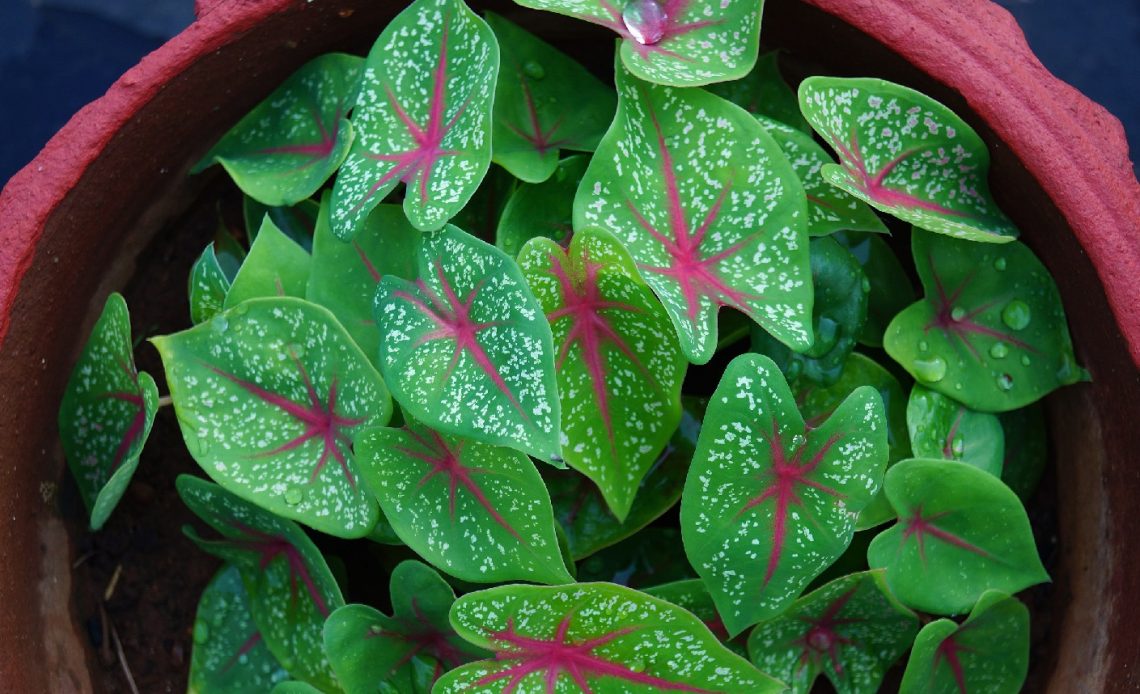

We’re here to help! Wild Yards is a completely free website that is 100% dedicated to helping you create a wildlife-friendly, sustainable yard. Read more
WildYards is reader-supported. When you buy a product through a link on our site, we may earn a comission. Every product is independently selected by our (obsessive) editors and our reviews are unbiased and objective. Read more about our mission or our privacy policy.
Elephant ear plants are fantastic to watch grow over the months. They are relatively easy to maintain and are stunning to look at from afar. They also happen to be great at deterring certain animals – but do deer eat elephant ear plants?
Deer likely won’t eat your elephant ear plants. It’s one of several plants that deer will actively avoid if they can. If you want to attract deer to your garden, it’s likely best to avoid growing too many. If you’d prefer not to welcome deer, of course, they may be an ideal deterrent.
Are elephant ear deer resistant?
Anecdotal evidence suggests that of all the crops deer are known to munch through, elephant ears remain untouched.
That said, it’s not impossible to expect deer to eat elephant ear plants. Such behavior will usually result from a lack of nutrition elsewhere – deer will eat pretty much anything if they are desperately hungry enough.
An excellent way to avoid local deer resorting to eating your elephant ear plants may be to grow more appealing vegetables and plants in your garden for them. Try to place a feeding plot at the edge of your yard, for example, replete with acorns, oranges, sweet potatoes, and even bananas!
There is not too much consensus available as to why deer are averse to eating elephant ear plants. They are classed as ornamental plants – which some may believe means they are unlikely to hold any real nutritional value for deer. However, this simply means they are grown largely for their aesthetic.
Deer are ruminant animals and have evolved to thrive on the food they innately know is easy to digest and is full of useful nutrients. It may be the case that elephant ears simply don’t satisfy their complex needs. However, elephant ear plants can also irritate many different animals – people included.
It’s worth keeping in mind that simply planting elephant ears won’t deter deer from your yard. No plants are truly deer resistant or are likely to repel the animals 100 percent of the time. Therefore, it may be prudent to hang wind chimes or set up double fence perimeters to further prevent deer from entering your yard.
What animal eats elephant ear plants?
Elephant ear plants are most likely to attract insects and smaller animals who will nibble away at their greenery over time.
Caterpillars, beetles, aphids, slugs, cutworms, and weevils, in particular, are known for being fans of elephant ear plants. You will notice their presence with holes in your leaves and even sometimes the stems.
The best way to prevent insect feasts is to spray them away with a hosepipe wherever possible – or to set up bug-proof netting to help keep minibeasts at bay.
What you shouldn’t do, however, is turn to insecticides and pesticides. Chemical sprays are not only lethal for insects, but also for innocent visitors to your yard – such as butterflies and other pollinators. What’s more, accidentally spraying your own edible crops may cause serious harm at the dinner table. Be sure to invest in cruelty-free insect deterrents.
Therefore, if you are noticing elephant ear plants in your garden starting to disappear or get eaten, it’s very unlikely to be local deer. It’s actually more likely that rabbits are scurrying past them and causing damage, too. While it’s unlikely rabbits will eat these plants, they’re another animal visitor you should watch for.
How should I protect my elephant ear plants?
There’s not much need to protect elephant ear plants from deer unless you are growing deer-friendly plants and crops in between them. However, you may wish to set up a specific cordon or fencing around your plants to be especially careful. This will not only keep deer away but will also ensure you have limited rabbit visitation.
It’s normally a good idea to set up an eight-foot barrier for elephant ear plants, with the panels slightly submerged to around six inches. Ultimately, if a deer can’t see crops or plants, it’s unlikely to show any interest.
Therefore, for full protection – and if you are not interested in welcoming deer to your garden otherwise – concentrate on growing plants and edibles they are known to avoid. Deer dislike prickly and fuzzy-textured growths, in particular. However, deer dislike ferns and normally won’t feast on coleus plants unless desperate.
This is a natural way to deter deer without risking scaring off any other animals you’d like to welcome to your yard. It may also be worth growing your lawn a little longer than usual, perhaps around your elephant ears. Deer won’t eat grass unless they have to, so again, you’re not making your yard particularly appealing to them.
No one is too sure why deer avoid elephant ear plants, but your greens are safe from roaming ruminants for the most part.
